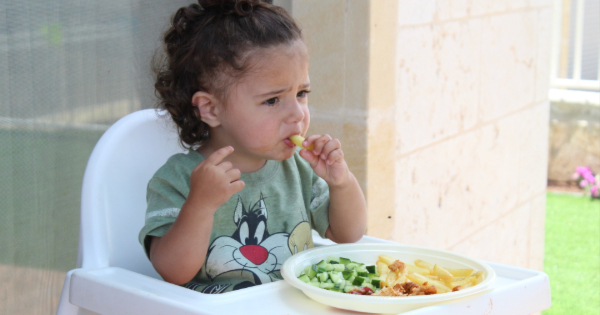The Good, The Bad, And The Cavity-Inducing: How Certain Foods Affect Your Child’s Teeth

You’ve spent the time to teach your child healthy dental practices, from brushing their teeth twice a day to making regular trips to a licensed dentist. However, these good habits aren’t all there is to having healthy teeth. Over 40% of children have dental cavities by the time they go to kindergarten. These dental issues must have a source of some sort. The most likely culprit is the types of food going into your child’s mouth.
Food has a huge impact on the health of your teeth. Just as there are certain foods your child should avoid, there are also beneficial foods that you can incorporate into their diets to improve the state of their teeth. Let’s take a look at what snacks you should start packing into your little one’s lunchbox and which ones you should limit to be just special treats.
Teeth-Friendly Foods
When you teach your child the foods they can eat to help the health of their teeth, you’ll be instilling even more good habits in them. They’ll be able to carry these eating habits with them for the rest of their lives, maintaining good dental health along the way. Good dental health also means better overall health throughout their lives.
One of the best foods you can provide for your child’s teeth is an apple. Chewing apples and other crunchy, high-fiber fruits and vegetables can scrub away the plaque from teeth. Plaque is what forms into tartar and can cause tooth decay.
Carrots and celery are also good foods for the job of getting rid of plaque. With its fibrous strands, celery can even act as nature’s floss and the water in the vegetable can help balance out sugars from other foods. As apples, celeries, and carrots are full of other beneficial vitamins and minerals, they are great snacks to squeeze into your child’s diet.
When eating at home, try incorporating eggs into meals. Eggs are a great source of vitamin D, protein, and calcium. All of these are essential minerals for oral health. Vitamin D is particularly important, as the body needs it to absorb calcium, which builds and maintains strong teeth. Milk, cheese, and yogurt are a few foods rich in calcium and should also be key players in your child’s diet. The nutrients in milk products can even neutralize some of the acids that plaque bacteria produce, protecting vulnerable tooth enamel.
Broccoli and green leafy vegetables also have significant benefits for teeth. They have a high level of vitamins and minerals that positively impact various parts of your oral health. Leafy greens such as spinach and kale also contain folic acid, which is known to help improve the health of gums and teeth. While this good acid goes to work, you can counteract dangerous acids that remove tooth enamel by eating nuts and seeds. These tiny snacks have high amounts of calcium and phosphorus, which help protect teeth against enamel-removing acids.
Teeth-Damaging Foods
If your child eats too much of the wrong types of food, you could find yourself in the offices of licensed dentists with your little one complaining of tooth pain. You likely already steer clear of the obvious culprits, such as sugary drinks and chewy candy. The sugar found in both of these treats sticks to the teeth. Organisms feed on the stuck sugar and turn it into acid, destroying tooth enamel and causing tooth decay. Even dried fruits can lead to a visit to a licensed dentist, as they are sticky like candy and contain sugar.
It’s the foods that you wouldn’t expect to cause damage, like dried fruits, that can be the most detrimental to your child’s dental health. Another unsuspecting offender is citrus fruit. While these fruits are an excellent source of vitamin C and other nutrients, they tend to be highly acidic and can erode tooth enamel over time. Grapefruit and lemon are particularly guilty of high acidity levels. Juices that come from fruits can pose a danger to tooth health as well, even ones that claim to be 100% fruit juice. They often contain high levels of sugar, which cause tooth damage.
Chips, bread, and pasta are also unfriendly to your child’s teeth. These foods are all composed of starches made from white flour, which means they are simple carbohydrates. These break down into simple sugars in the body, which can lead to tooth decay. Rather than eating bread and pasta made with white flour, choose whole wheat options at the store. Cutting out chips completely is often a good choice, as they provide no nutritional value on top of being bad for teeth.
Put these food tips to good use by the next time you bring your child to a licensed dentist and you will hopefully see good results. Even the smallest change in diet can lead to healthier teeth and a lower chance of dental issues. Contact the licensed dentists at Smilez Pediatric Dental Group today to schedule an appointment for your kids.


